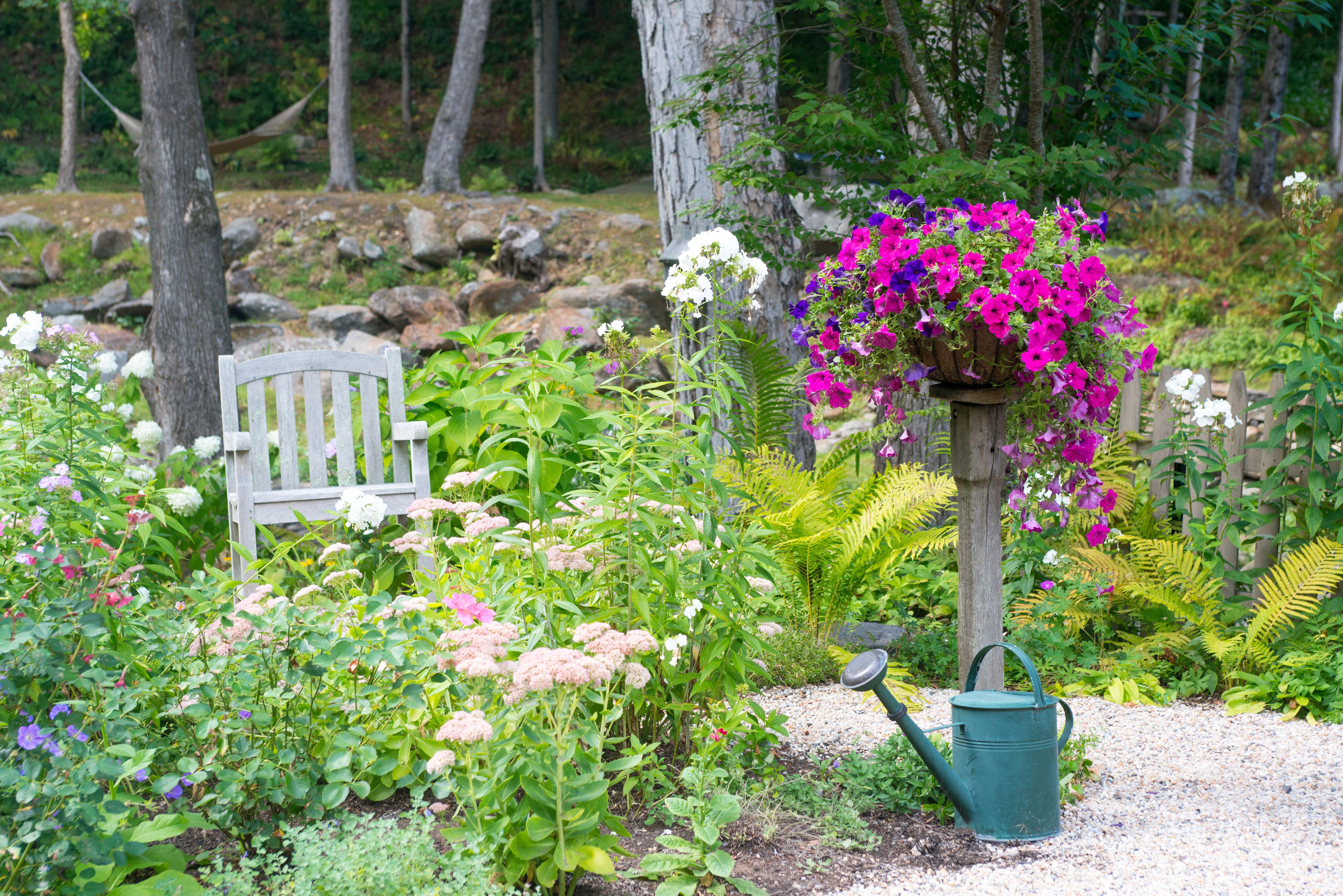Want to save water and still have a thriving garden? A few common missteps could be costing you both water and money, and even may be hindering your plants. But it's simpler than you may think to keep your garden hydrated and healthy with minimal waste. Here's how to use water wisely for the benefit of your plants, the planet, and your wallet.
1. Watering at the Wrong Time
Watering in mid-afternoon when the sun is high can cause water loss of up to 30% through evaporation. The ideal time to water is in the morning before 9:00 a.m. when temperatures are cooler, winds are calmer, and the plants are less heat-stressed and have time to absorb moisture before it evaporates. Plus, any moisture on leaves should be dried by the afternoon sun, which helps reduce plant diseases.
While it's tempting to water later in the day when it's cooler out, evening watering may promote fungal and bacterial diseases because moisture on leaves will evaporate slower over night. The longer leaves stay wet, the more time conditions stay favorable for pathogens to take hold.
2. Overhead Irrigation
Watering plants overhead can lose up to 30% of water to evaporation before it reaches your plant. Also, plants absorb water best at the root zone, not through their leaves. Soaker hoses, drip irrigation, or hand watering at the soil level are more efficient options. Plus the more you can avoid getting foliage wet, the better for reducing plant diseases.
3. Frequent, Shallow Watering
How often you water and the amount matter, too. Longer, deeper watering on a less frequent basis encourages strong root systems. Shallow daily watering leads to short, weak roots. Plants should receive about an inch of water per week, depending on their specific needs. If you're using a sprinkler system, adjust the heads to point at your plants and set timers to make sure they're watering on the correct schedule.
4. Leaving Bare Soil
While occasional empty spots can benefit ground-nesting insects, too much bare soil in your garden can lead to erosion, compaction, and water runoff, not to mention plenty of weed growth. Cover the ground with mulch or plants to protect the soil and conserve moisture. If applied 2-3 inches deep, compost or wood chips can help suppress weeds and keep roots cooler, as well as improve water retention in the soil. Or, try planting groundcovers and companion plants that help slow down water runoff and also shade soil, which slows down evaporation.
Related
5. Planting in the Wrong Place
“Right plant, right place” is the first rule of gardening for good reason. Planting high-water plants in sandy soil or hot, exposed areas sets them up for stress and wasted water. Instead, choose plants (especially natives) that match your site’s light, soil, and moisture conditions.
Look for drought-adapted or xeric plants to save water, but remember that they still need regular watering while establishing their roots in your garden, especially during the first two years. For even better results, try hydrozoning, which involves grouping plants by their water needs. This way, you only need to give extra water where it’s needed.
To reduce drought-stress and conserve moisture, place high-water plants where they’ll get some afternoon shade or protection from wind. Mulch also helps to keep roots cool and growing, even during hot weather.
6. Ignoring Water Harvesting Opportunities
Every year, hundreds of gallons of free water run off your roof and driveway, often straight into storm drains, where it’s lost to your garden and can contribute to water pollution. By capturing and reusing this runoff, you can lower your water bill, grow a more resilient garden, and support cleaner, local waterways.
A rain barrel is a great first step. Once you see how much you can collect, you may want to link multiple barrels or invest in a larger cistern tucked under a deck or behind a shed. Beyond barrels, look into rain gardens, bioswales, or even reusing graywater from your laundry or shower. Make sure to check local regulations because some municipalities offer rebates or support for stormwater management.



